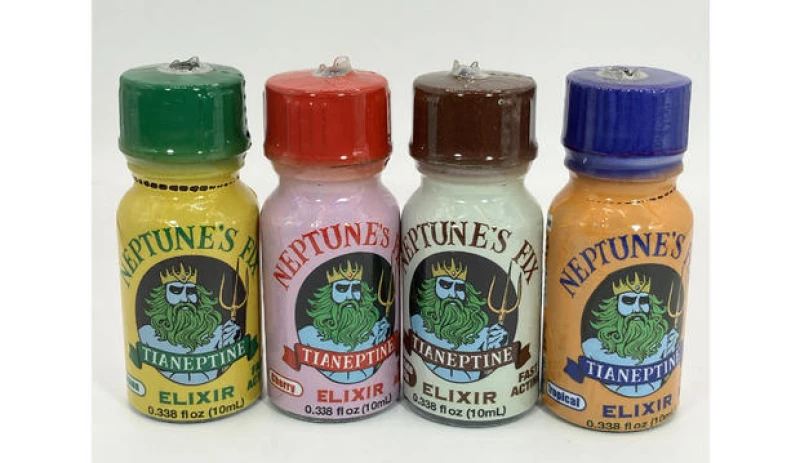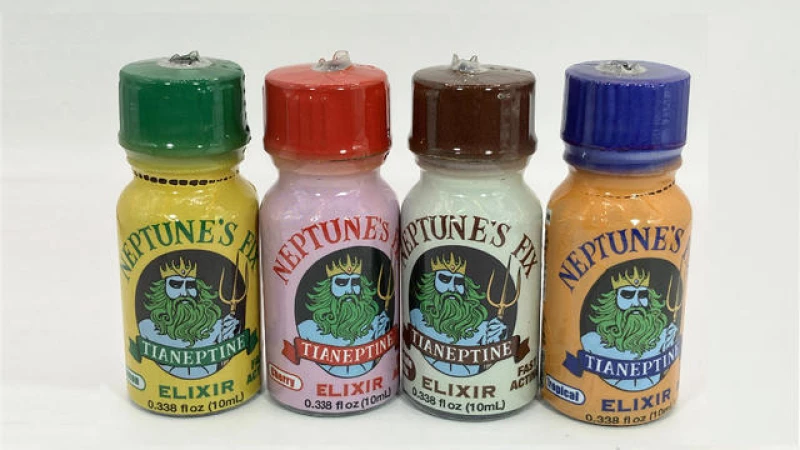Warning: Avoid Neptune's Fix Supplements
The Food and Drug Administration (FDA) has issued a warning to consumers, urging them not to use or purchase any products from the supplement brand called Neptune's Fix.
Neptune's Fix supplements claim to contain tianeptine, an opioid alternative that is prescribed as an antidepressant in certain Latin American, Asian, and European countries. However, it should be noted that tianeptine is not approved for use in the United States.
The FDA has previously raised concerns about this "potentially dangerous" substance, which has been associated with addiction and fatal overdoses.

Authorities are now worried that other substances may also be present in these products, which are being illegally sold online and in various retail locations such as gas stations, vape shops, and smoke shops.
This recent FDA warning comes shortly after health officials in New Jersey reported a cluster of poisonings linked to tianeptine products, including Neptune's Fix. More than half of the affected patients experienced seizures after consuming these products, with some requiring hospitalization. Other severe symptoms, such as hallucinations and vomiting, were also observed in these cases.
An official from the FDA declined to comment when asked for a statement.
The Rise of "Gas Station Heroin"
In recent years, authorities have taken action against various tianeptine supplements. This comes after the CDC reported in 2018 an increase in calls to poison control centers related to tianeptine abuse and withdrawal.
Commonly referred to as "gas station heroin" due to its widespread availability in convenience stores and small retailers, several states have taken measures to restrict the sale of this drug. Other tianeptine brands previously cautioned against by the FDA include Za Za and Tianna Red.
In September, Florida's attorney general declared an emergency rule to classify tianeptine as a Schedule I controlled substance in the state. This follows similar efforts to tighten regulations on the drug in Alabama, Georgia, Indiana, Kentucky, Michigan, Mississippi, Ohio, and Tennessee.
Federal prosecutors have also taken legal action against companies involved in smuggling and selling tianeptine products in the United States.
Unlike typical antidepressants, the drug works by binding to the body's mu opioid receptors, causing effects that mimic opioid toxicity and withdrawal. Similar to other opioids, naloxone has been used to manage tianeptine overdoses.
"We were having to put a lot of people in the intensive care units (ICUs) because the withdrawal symptoms were so bad and often included delirium requiring high doses of sedating medications," Dr. William Rushton, head of the University of Alabama's Medical Toxicology program, said in a post by the university.







